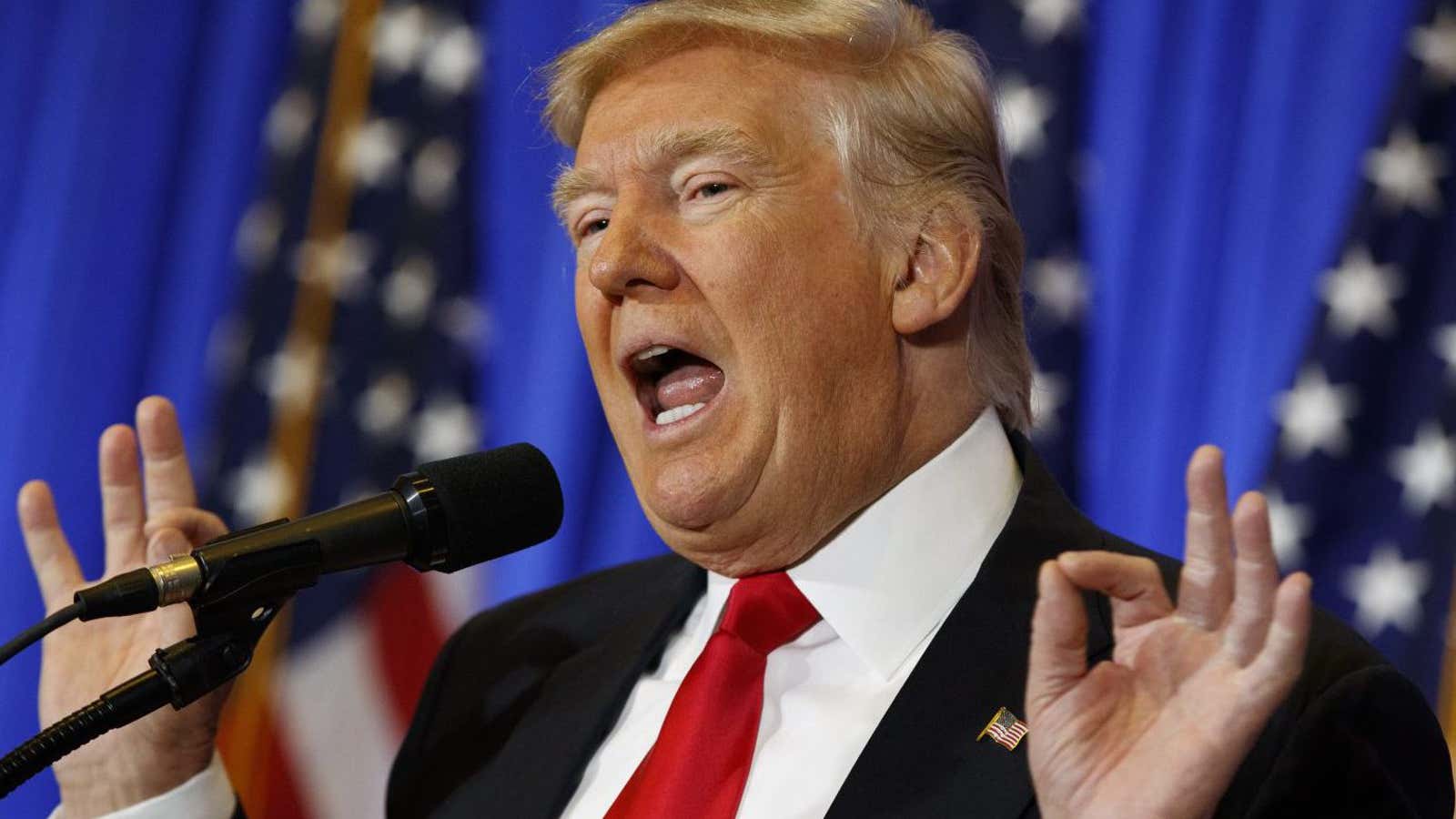Washington, DC is in a lather over reports of regular contact between suspected Russian spies and people close to US president Donald Trump—especially since US intelligence agencies think Moscow was plotting at the same time to help him win the November election.
If Trump campaign officials conspired with the Kremlin to release damaging information about Hillary Clinton, or promised to relax sanctions before he took office, that is clearly beyond the pale. The Logan Act, in particular, bars unauthorized US citizens from interfering with US diplomatic relations.
But as long as Trump’s advisors, campaign officials or others close to him weren’t conspiring to steal the election or commit some other nefarious deed, such contact is standard, legal, and sometimes even wise, experts say.
“For business people dealing in Russia, they need to know what things not to touch,” said Mathew Burrows, former counselor to the US National Intelligence Council, which amalgamates the country’s 17 spy agencies. For example, a useful Russian spy can warn you away from financial deals that could get you in hot water with people it’s best not to anger.
And it’s not only business people who encounter Russian spies. In the 2000s, I was at Stanford University, working on a book about the race for geopolitical power between the US and Russia on the Caspian Sea. One day, the phone rang, and a diplomat named Pavel at the Russian Consulate in San Francisco introduced himself. Did I want to have coffee?
Pavel was known around the Stanford building as a not-very-well-disguised officer with the FSB, the successor agency to the KGB. And when we met, his questions gave me a pretty good idea what Russian intelligence was interested in—especially the tiny country of Georgia. That was terrific for the book.
A couple of weeks later, I picked up the phone in my office again. A man identifying himself as a counterintelligence officer from the FBI was on the line. Would I like to have coffee? This time the meeting was with him and his partner. It seemed they had been surveilling Pavel. Did I know he was a spy? When I explained about the book, they suggested it nonetheless wasn’t a great idea to keep meeting with him. But they could not stop me if I wanted to continue to do so.
This game has gone on for decades: During the Cold War, Americans doing business in the Soviet Union were routinely visited by the CIA on returning home, and were more or less expected to disgorge whatever they had seen and heard.
That’s the thing, Burrows told Quartz: If an American political operative is breaking a law or making promises on sanctions (which is what Michael Flynn, Trump’s now-fallen national security adviser, is suspected of doing), “that is definitely crossing the line,” Burrows said. “But there are some in the media and Congress that believe that even talking to a sanctioned individual is, for example, a crime. It isn’t.”
And, says Burrows, “unless we want to return to McCarthyism, having contacts—i.e. talking with Russian officials—should not be made into a crime.”
Republican senator Lindsay Graham catches the nuance. He is calling for an investigation to discover whether the Trump campaign’s contacts with Russian spies were ”outside the norm.”
If they were, “that’s not only big-league bad, that’s a game changer,” he told ABC News. “And I would change my view as to what Congress would do,” including the launch of a full-scale Congressional investigation. But if it was the usual, he would leave it alone.
